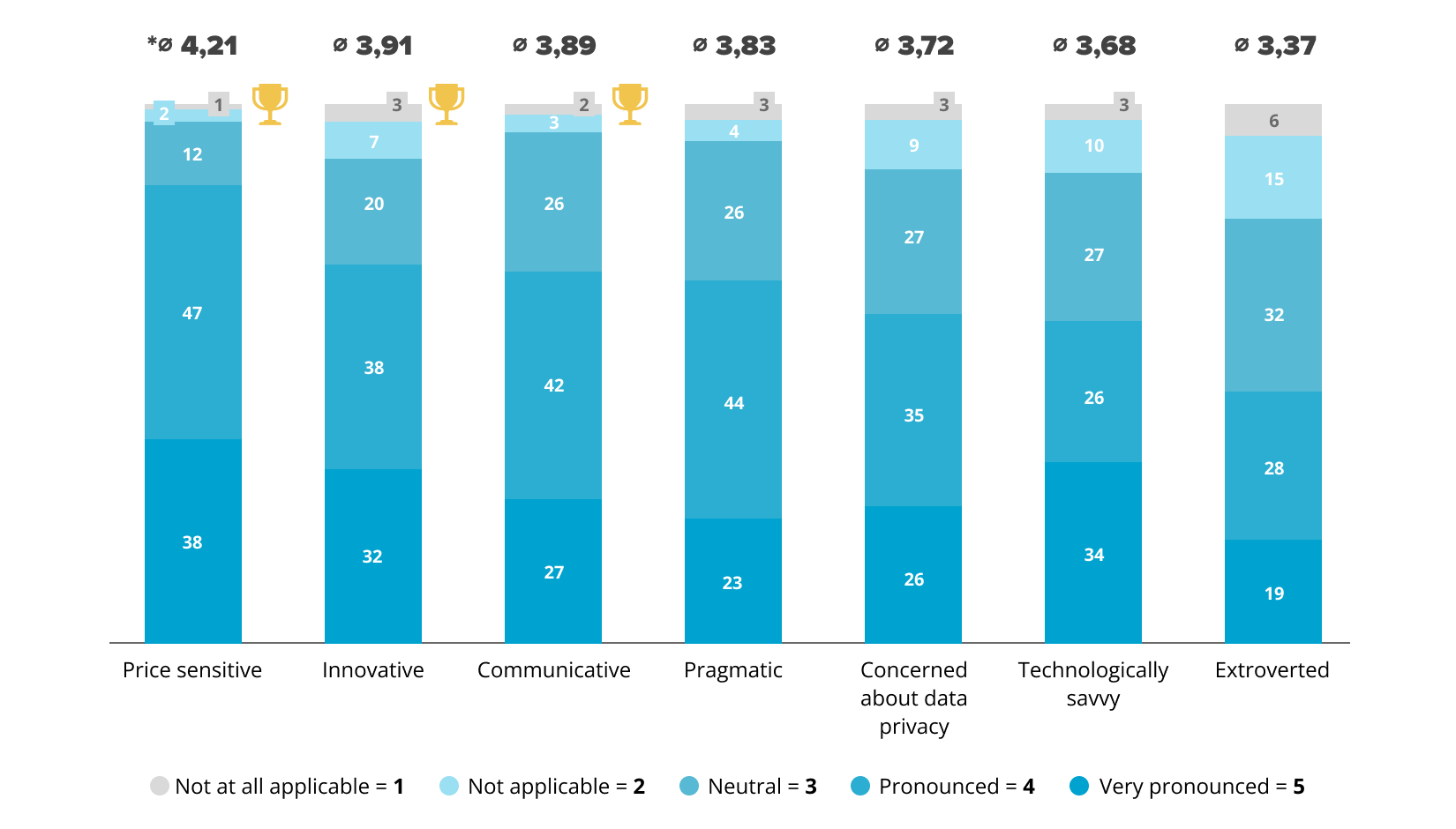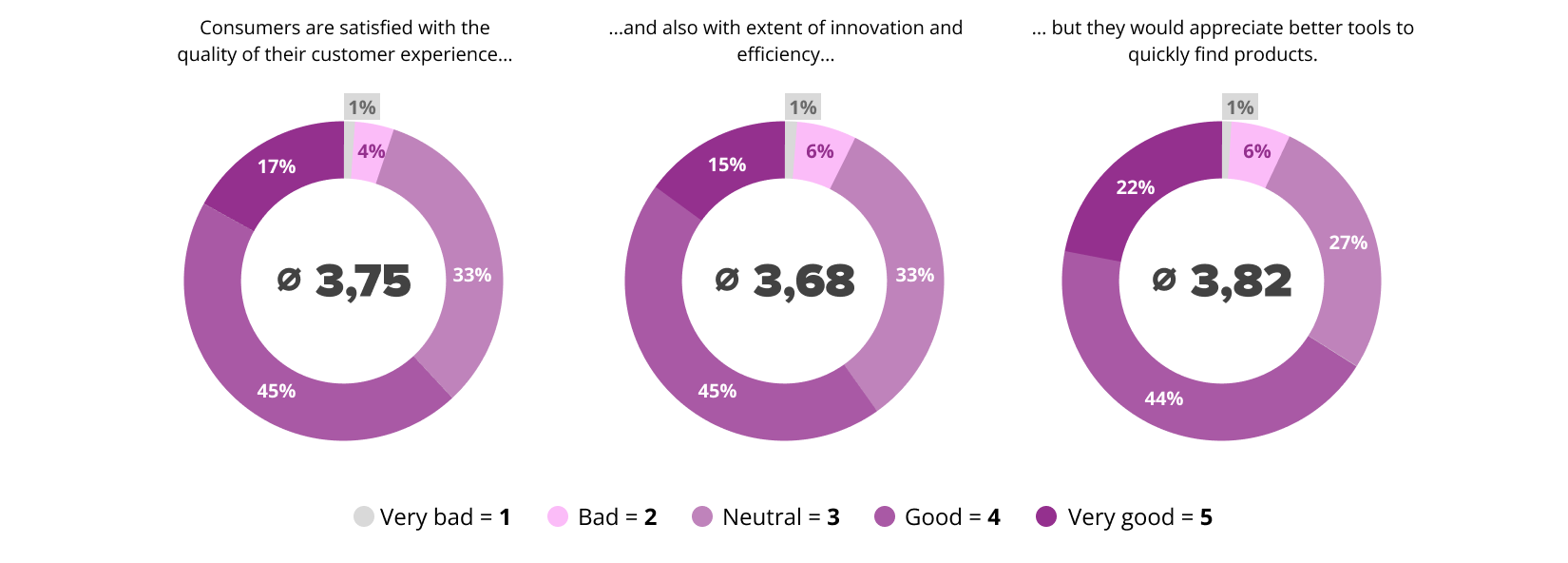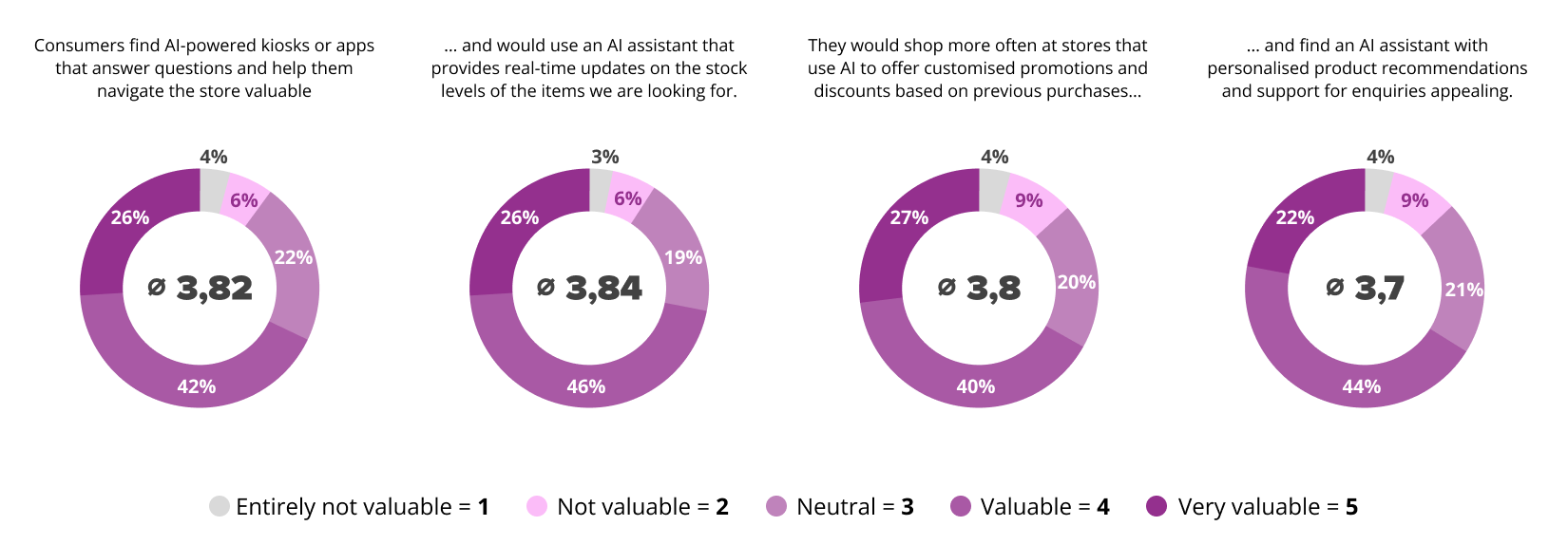Artificial intelligence (AI) applications are making headway in ecommerce and back-office processes. But what about consumers' acceptance of AI in brick-and-mortar retail? What do they expect from AI technologies and how could they improve the in-store shopping experience?
To answer these questions and better advise our clients, SoftServe and KPMG conducted a survey of over 500 consumers in Germany.
It seems like consumers are more open to technology in physical retail than often assumed. They show a concrete interest in AI-based in-store solutions — especially when it comes to finding products faster. In particular, younger, better-educated, and higher-income target groups are particularly receptive.
Our respondents: Higher income means greater openness to technology
Consumers Are Price-concious, Innovative, and Communicative

On the other hand, respondents rated themselves as innovative with an average score of 3.91. They rated their affinity for technology at 3.68. These results show a moderate to high propensity to adopt new technologies, which increases with income:
- Consumers with higher incomes not only have a higher affinity for technology but are also more innovative and pragmatic.
- Men rate their openness to new retail technologies at an average of 4.25 points, while women rate it at 3.92 points.
Consumers are still looking for a personal touch
Despite this openness to technology, 63% of respondents still say they prefer to ask for help from store staff. However, 33% express interest in an AI-generated virtual assistant or self-service kiosk. This suggests the potential for AI-based technologies to complement human interaction.
What bothers consumers the most?
Which problems could AI solve for consumers? Our survey found that the top annoyance for respondents in local retail is out-of-stock products — a problem cited by 20% of respondents. Other top complaints included:
- Unfriendly or unqualified staff: 15%
- Clutter and lack of cleanliness: 15%
How Consumers Evaluate Physical Retail

Attitudes to AI-powered solutions

The majority of respondents find the use of AI useful in their day-to-day in-store navigation and product searches. When it comes to specific AI applications, respondents agree that solutions such as navigation apps, real-time stock updates, and personalised promotions and discounts are seen as particularly valuable.
We saw the following trends emerge from our research:
- Assistance kiosks or apps: Consumers rated these as valuable with an average score of 3.82.
- Personalised product recommendations: An AI assistant that makes recommendations based on previous purchases is appealing.
- Real-time inventory updates: Consumers said they would shop more often in stores that offer this feature.
- Younger and higher-income consumers, as well as men, were most open to these technologies.
Evaluations of AI-supported Solutions

The potential consumer benefits of AI assistants
Based on these findings, we see great potential for AI-powered sales assistants to address key consumer challenges and improve the shopping experience:
- Strengthening consumer focus: An AI assistant can provide personalised assistance tailored to the individual needs of customers.
- Solving current challenges: Problems such as finding products or unfriendly staff could be alleviated or even eliminated by AI.
- Enhancing the shopping experience: AI can offer personalised shopping for all consumer profiles.

Make physical retail more appealing with AI
Our research shows that brick-and-mortar consumers are open to technology and willing to try new solutions if they offer clear benefits. AI has the potential to increase overall customer satisfaction while meeting the demands of the modern consumer and building brand loyalty.
The introduction of AI in brick-and-mortar retail is therefore an opportunity to make shopping not only more efficient but also more personal and intuitive. This is especially true for retailers looking to attract younger, higher-income consumers. While individual consumer needs still vary, our survey shows clear trends that indicate a willingness and desire to adopt new technologies such as AI.
Are you ready to shape the future of your retail business with AI? The possibilities are endless. Learn more about how AI can revolutionise your retail processes.
Learn more
